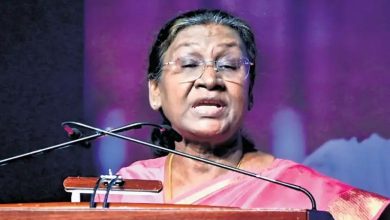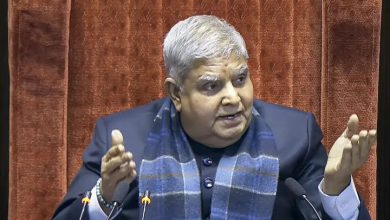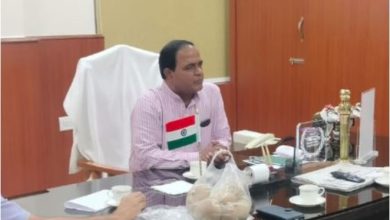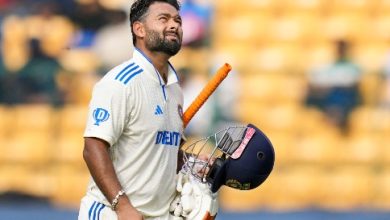One Nation, One Election Bill in Lok Sabha: 269 votes in favour, 198 against; who’s supporting, who’s not?
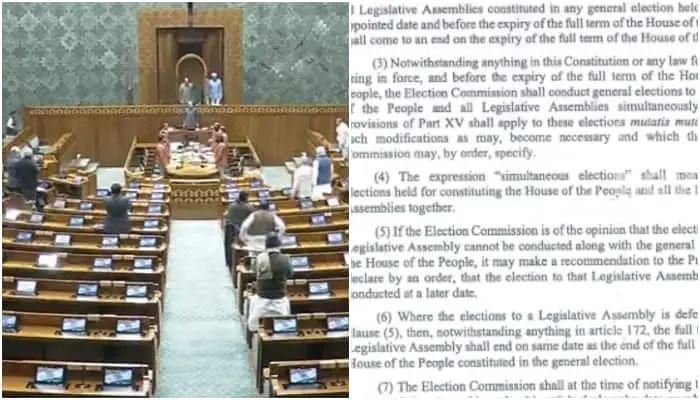
Union Law Minister Arjun Ram Meghwal on Tuesday introduced much-debated ‘One Nation, One Election’ bill in the Parliament. With the Union Cabinet’s approval, this proposal aims to streamline elections for Lok Sabha and state legislative assemblies, fundamentally altering India’s electoral process.
Concept not new: Govt
Ahead of the introduction of bills on holding simultaneous polls, the government on Tuesday said the concept is not new to the country.
Following the adoption of the Constitution, elections to the Lok Sabha and all state assemblies were conducted simultaneously from 1951 to 1967, it noted.
The government said the first general elections to the Lok Sabha and State Assemblies were held together in 1951-52, a practice that continued for three subsequent general elections in 1957, 1962, and 1967.
“However, this cycle of synchronised elections was disrupted in 1968 and 1969 due to the premature dissolution of some State Legislative Assemblies,” an official explainer said.
The Fourth Lok Sabha was also dissolved prematurely in 1970, with fresh elections held in 1971. Unlike the first, second, and third Lok Sabha, which completed their full five-year terms, the fifth Lok Sabha’s term was extended until 1977 under Article 352 because of the declaration of Emergency.
Since then, only a few Lok Sabha terms have lasted the full five years, such as the eighth, 10th, 14th and 15th. Others, including the sixth, seventh, ninth, 11th, 12th and 13th, were dissolved early.
One Nation, One Election Bill tabled: Who’s supporting, who’s not?
The Constitution (129th Amendment) Bill was introduced in the Lok Sabha by Meghwal after a nearly 90-minute debate, followed by a division of votes.
Opposition parties dubbed the draft laws — a Constitution amendment bill and an ordinary bill — as an attack on the federal structure, a charge rejected by the government.
After electronic voting and a subsequent count by paper slips, the bills were introduced with 269 members in favour and 198 against. This was the first time that the electronic voting system was used in the Lok Sabha in the new Parliament House.
While the BJP and its allies have backed the bills, several opposition parties, including Congress, Samajwadi Party, and Shiv Sena (UBT) have opposed it.
A total of 32 parties are supporting the One Nation One Election move, while 15 others are opposing it. Fence sitters like Jagan Mohan Reddy’s YSRCP, BRS, and AIADMK have also backed the legislation that would enable simultaneous elections to the Lok Sabha as well as state assemblies.
Congress
Congress
Congress member Manish Tewari opposed the introduction of the bills and termed the move an assault on the basic structure doctrine that stipulates certain features of the Constitution are beyond the amending power of Parliament.
“One of the essential features is federalism and the structure of our democracy. The bills assault the basic structure of the Constitution and exceed the legislative competence of this House,” Tewari, a former Union minister, said.
Shiv Sena (UBT)
Echoing the Congress, Shiv Sena (UBT) MP Priyanka Chaturvedi said the bill was against the Constitution. “It is an attack on the Constitution. It is tampering with the election process. The BJP wants to centralise power. We don’t know how cost-effective it will be. We will oppose this bill,” she said.
Samajwadi Party
Despite having differences with the Congress on a host of issues, the Samajwadi Party also said it would oppose the legislation.
“In a way, this is another conspiracy to destroy the Constitution,” Akhilesh Yadav tweeted.
Trinamool Congress
The Trinamool Congress (TMC), another party that has recently had fraught relations with the Congress, said the party would oppose the One Nation One Election bill “tooth and nail”.
The bill will rob the people of their fundamental right to vote regularly, a right that holds governments accountable and prevents unchecked power,” TMP MP Abhishek Banerjee tweeted.
“This is not just a bill rather it is a direct assault on the very foundation of our democracy built through the sacrifices of our founding fathers. Bengal will not sit silent. We will fight tooth and nail to protect the soul of India and crush this anti-democratic agenda,” he added.
DMK
DMK supremo and Tamil Nadu Chief Minister MK Stalin said its MPs would also oppose the bills, saying it was the BJP’s ultimate aim to usher in a presidential form of governance. Stalin argued that the bills, if passed, would eliminate the system of periodic state elections, thereby undermining regional sentiments.
TDP, YSR CONGRESS BACK ONE NATION ONE ELECTION
The bills found support from NDA allies like Chandrababu Naidu’s TDP, JD(S) and fence-sitters like YSRCP.
YSRCP MP PV Mithun Reddy said the party did not have any issues with simultaneous polls. “We are already having simultaneous state elections with general elections. We don’t have much issues. We will support the bill,” he said.
Accusing Congress of double standards, Union Parliamentary Affairs Minister Kiren Rijiju said the country used to have simultaneous polls during the regime of Jawaharlal Nehru after Independence.
“When India got independence, for two decades India had One Nation One Election. It was only after Congress misused Article 356, that there were different elections… Does Congress mean to say that Pandit Jawaharlal Nehru’s government for so long was illegal?” Rijiju said.



